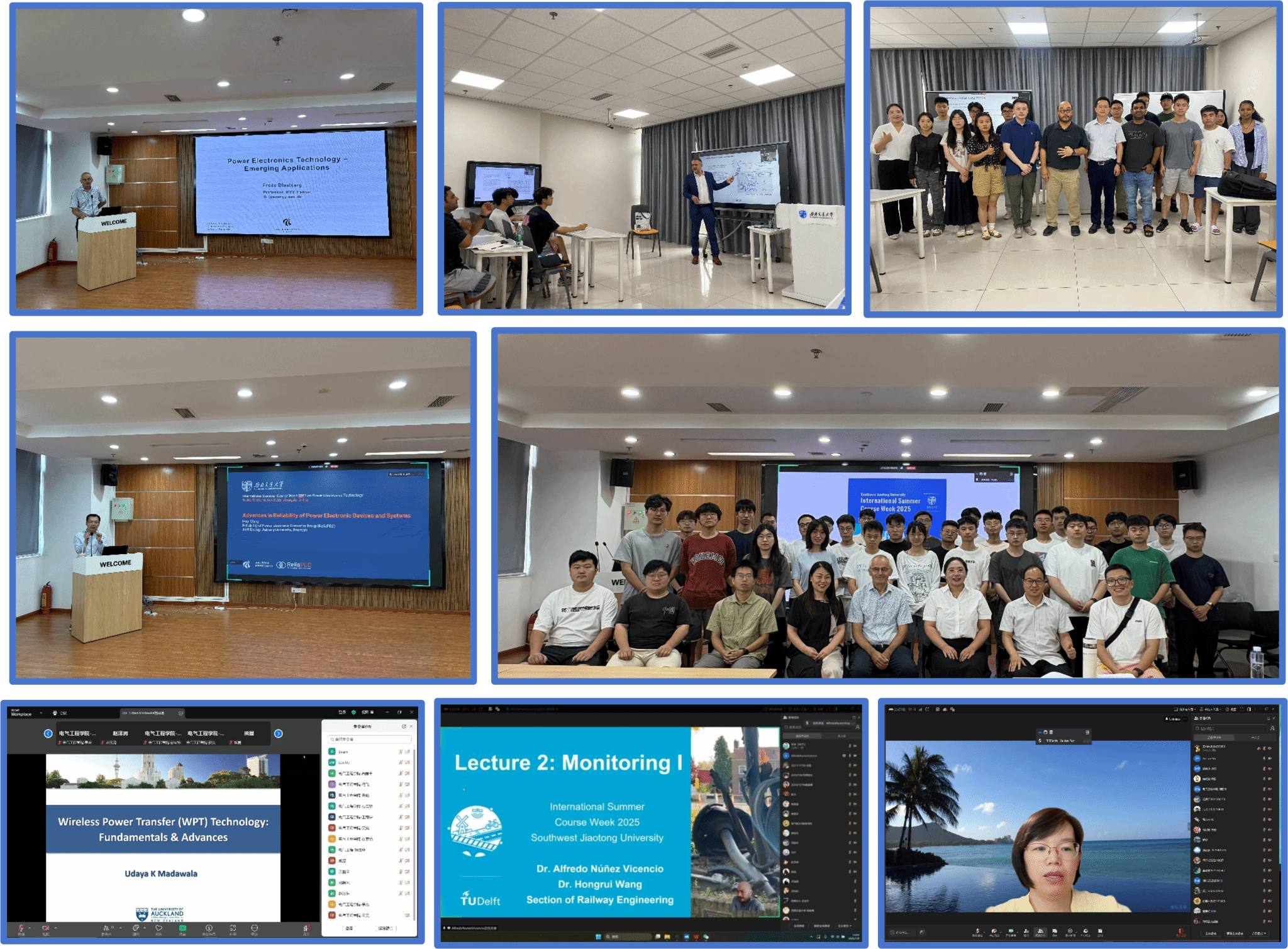From July 8 to 18, 2025, the "Summer International Course Week" was successfully held. The event attracted over 400 faculty and students from SWJTU. The college invited ten renowned domestic and international experts and scholars, who jointly offered four courses covering:Intelligent Railway Infrastructure,Advanced Control Theory,Frontier Technologies in Power Electronics,Motor and Power System Control.
The courses combined theoretical lectures with practical engineering case studies, fostering active classroom discussions and frequent interactions among participants.
Professor Alfredo Núñez, from Delft University of Technology, delivered a lecture on "Intelligent Railway Infrastructure". He provided an overview of railway asset management and modern monitoring technologies, integrating engineering case studies from Dutch railways to demonstrate the application of physical modeling and data analyses in enhancing railway safety and maintenance efficiency.
Professor Ya-Jun Pan, from Dalhousie University, delivered a lecture on "Advanced Control Theory and Design". He provided an in-depth yet concise overview of key topics, including state-space modeling, stability analysis, and linear quadratic optimal control, and illustrated their practical applications through real-world engineering examples.
Professor Frede Blaabjerg, from Aalborg University, presented on "Power Electronics: Emerging Applications", highlighting the transformative role of power electronics in renewable energy, smart grids, and electric mobility.
Academician Huai Wang of the Danish Academy of Technical Sciences, professor from Aalborg University, delivered a lecture titled "Advances in Power Electronics Device and System Reliability", focusing on reliability design, condition monitoring, and predictive maintenance, while addressing key research findings and engineering challenges.
Professor Pooya Davari from Aalborg University, explored "Conducted Electromagnetic Interference (EMI) Modeling and Mitigation in Power Electronics", presenting practical suppression strategies and engineering insights.
IEEE Fellow Udaya K. Madawala from the University of Auckland discussed "Wireless Power Transfer: Fundamentals and Frontier Advancements", reviewing core theories and recent breakthroughs in coil structures and compensation modeling.
Professor Pedro Rodriguez, from the Luxembourg Institute of Science and Technology, presented on "Grid-Forming Converters: Fundamentals, Control Principles, and Standards", elucidating the implementation mechanisms and standardization requirements of grid-forming converters as "virtual power sources" in modern power systems.
Professor Kyo-Beum Lee, from Ajou University (Korea), delivered a lecture titled "Control of Motor Drive Systems", providing an in-depth analysis of modern motor drive control strategies and performance optimization methods, with discussions centered on electric vehicles and industrial drive applications.
Professor Yihua Hu, from King's College London, explored "Intrinsic Safety of Electric Vehicle Powertrains", focusing on fault mode analysis, reliability assessment, and safety design methodologies for powertrain systems.
IEEE Fellow Peng Wang from Nanjing Normal University addressed "Modern Power Systems and Technological Transformations", examining the technological revolutions brought by distributed energy and renewable integration, along with power system digitization, and their profound impacts on system operation and management.
Such international, high-quality teaching activities not only enhance the academic and research atmosphere but also foster long-term international collaboration for the college.


